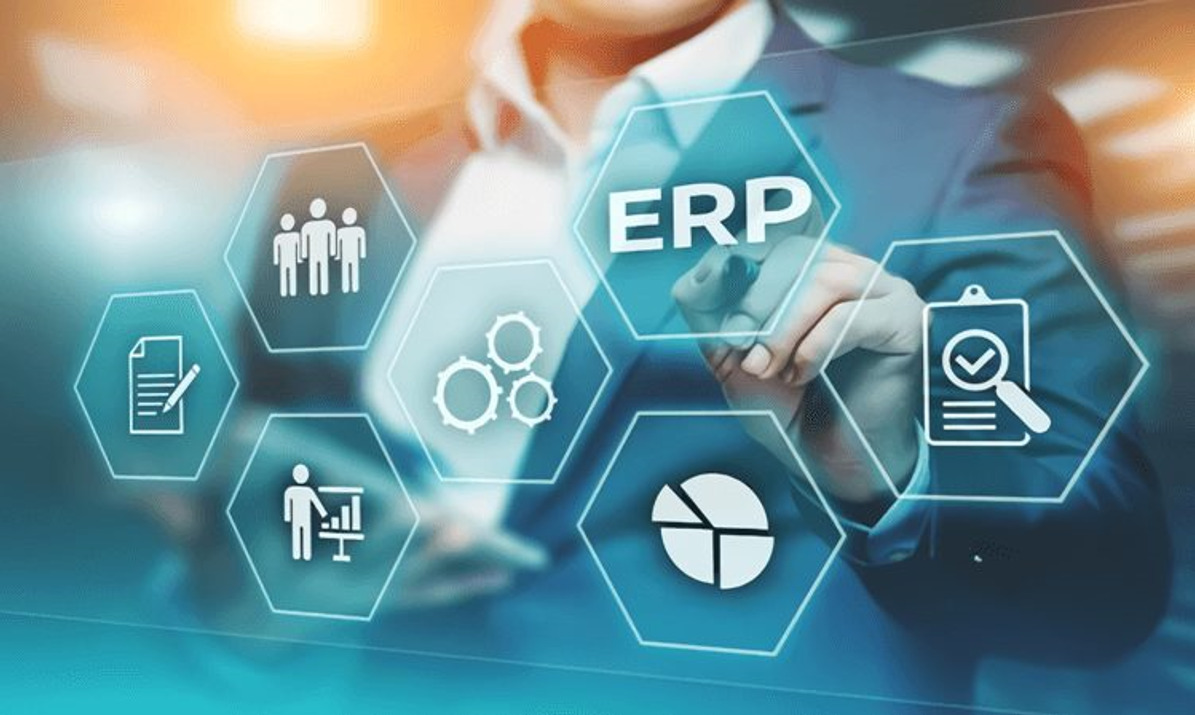
CiMSO shares lessons on how to avoid the pitfalls of ERP implementation for hotels and clubs.
Enterprise Resource Planning (ERP) implementations can fail for various reasons, and addressing these issues requires careful planning and proactive management. CiMSO supports clients transitioning from fragmented legacy software systems to integrated ERP solutions. CiMSO also manages the successful deployment of new systems in compliance with their ISO90003 Quality Management Systems and PRINCE II project management methodologies.
ERP implementation failures
Here are the most common reasons for ERP implementation failures and how CiMSO avoids these challenges:
Poorly Defined Objectives and Scope:
- Customer’s Challenge: The lack of clear and well-defined goals and objectives for the ERP implementation can lead to confusion and misalignment among stakeholders. Without a clear scope, the project may drift off course.
- CiMSO’s Strategy: Clearly define the project’s objectives and scope from the outset. Engage stakeholders to ensure their expectations align with the project’s goals. Regularly revisit and refine these objectives throughout the implementation.
Inadequate Planning:
- Customer’s Challenge: Incomplete or insufficient project planning can result in a lack of resources, unrealistic timelines, and insufficient budget allocation. Proper planning is essential for a successful ERP implementation.
- CiMSO’s Strategy: Develop a comprehensive project plan that includes timelines, resource allocation, and budget estimates. Consider potential risks and develop contingency plans. Ensure that the project plan is realistic and achievable.
Lack of User Involvement and Training:
- Customer’s Challenge: Users are often resistant to change, and if they are not adequately involved in the project from the beginning and provided with adequate training, they may struggle to adapt to the new system, leading to decreased productivity.
- CiMSO’s Strategy: Involve end-users early in the project to gather input and feedback. Provide comprehensive training programs to ensure users are comfortable with the new system. Establish a support system for users to seek help when needed.
Poor Change Management:
- Customer’s Challenge: ERP implementations often involve significant organisational change. Failure to manage this change effectively, including addressing employee concerns and providing support, can result in resistance and project failure.
- CiMSO’s strategy: Develop a robust change management strategy that includes communication plans, employee engagement, and addressing concerns. Seek executive support and designate change champions within the organisation to promote adoption.
Inadequate Data Management:
- Customer’s Challenge: ERP systems rely on accurate and complete data. If data quality is poor or data migration is mishandled, it can lead to errors and inefficiencies within the ERP system.
- CiMSO’s Strategy: Conduct a thorough data audit and cleansing before migrating data to the ERP system. Establish data governance practices to maintain data quality. Develop data migration plans and conduct thorough testing to ensure data accuracy.
Customisation Overload:
- Customer’s Challenge: While some level of customisation may be necessary to meet specific business needs, excessive customisation can lead to increased complexity, longer implementation times, and higher costs. It can also make system upgrades and maintenance more challenging.
- CiMSO’s Strategy: Evaluate the necessity of each customisation request carefully. Prioritise configurations over customisations whenever possible. Consider the long-term maintenance and upgrade implications of customisations.
Inadequate Vendor Support:
- Customer’s Challenge: Choosing the right ERP vendor is crucial. If the vendor does not provide adequate support, updates, or maintenance, it can lead to system instability and increased downtime.
- CiMSO’s Strategy: Choose a reputable ERP vendor with a track record of providing support and updates. Establish a clear support agreement that includes response times and issue resolution procedures.
Scope Creep:
- Customer’s Challenge: Expanding the scope of the ERP project beyond its original objectives without proper evaluation can result in increased costs and timelines. It’s essential to manage scope changes effectively.
- CiMSO’s Strategy: Document and review scope changes rigorously. Assess the impact of each change on the project’s timeline, budget, and resources. Seek approval from project stakeholders before implementing any scope changes.
Resistance to Standardisation:
- Customer’s Challenge: ERP systems often require organisations to standardise their processes. Resistance to standardisation or attempts to maintain legacy processes can hinder the success of the implementation.
- CiMSO’s Strategy: Communicate the benefits of standardisation to employees. Involve them in the process of gathering input and addressing concerns. Highlight how standardisation can improve efficiency and decision-making.
Inadequate Testing:
- Customer’s Challenge: Skipping or inadequately conducting testing phases, such as system integration testing and user acceptance testing, can result in undiscovered issues that surface after the system is in production, causing disruptions.
- CiMSO’s Strategy: Develop a comprehensive testing plan that includes unit, system integration, and user acceptance testing. Conduct thorough testing cycles and resolve issues before going live.
Budget Overruns:
- Customer’s Challenge: ERP projects can be expensive, and if the budget is not carefully managed, it can lead to cost overruns that strain the organisation’s financial resources.
- CiMSO’s Strategy: Monitor project expenses closely and track them against the budget. Be prepared to adjust the budget if necessary, but do so with careful consideration and approval from stakeholders.
Lack of Executive Support:
- Customer’s Challenge: ERP implementations can struggle to gain the necessary buy-in and resources from across the organisation without strong support from top-level executives.
- CiMSO’s Strategy: Secure executive sponsorship early in the project to ensure support and resources. Communicate the strategic benefits of the ERP implementation to gain buy-in from top leadership.
Inaccurate Timeframes:
- Customer’s Challenge: Unrealistic timelines can put undue pressure on the project team, leading to rushed decisions and suboptimal outcomes. Setting achievable milestones is crucial.
- CiMSO’s Strategy: Develop realistic project timelines by considering all project tasks, dependencies, and potential delays. Communicate these timelines clearly to stakeholders and be prepared to adjust as needed.
Inadequate Risk Management:
- Customer’s Challenge: Failing to identify and mitigate potential risks early in the project can lead to unforeseen challenges derailing implementation.
- CiMSO’s Strategy: Identify potential risks at the outset and develop risk mitigation plans. Continuously monitor and assess risks throughout the project’s lifecycle and adjust strategies as necessary.
Ineffective Project Governance:
- Customer’s Challenge: A lack of a clear project governance structure, including roles and responsibilities, can result in confusion, delays, and miscommunication.
- CiMSO’s Strategy: Establish a clear project governance structure with defined roles and responsibilities. Regularly review project progress and promptly resolve any governance-related issues.
In conclusion
After decades of ERP implementations, CiMSO Business Solutions sees successful ERP implementations requiring a holistic approach that addresses these factors throughout the project’s lifecycle. Effective communication, stakeholder engagement, and proactive risk management are key to mitigating potential issues and ensuring a successful ERP implementation.
Contact us
CiMSO supports clients transitioning from fragmented legacy software systems to integrated ERP solutions. CiMSO also manages the successful deployment of new systems in compliance with their ISO90003 Quality Management Systems and PRINCE II project management methodologies.
Please contact your local CiMSO office or Value Added Reseller for more information on CiMSO’s Integrated ERP Software Suites for Hotels, Lodges, Resorts, Clubs, Timeshare, and Leasing management.

From Guiding Stars to Gourmet Experiences: A New Era in Restaurant Software

Maximizing Guest Satisfaction with CiMSO Solutions

Insights from Fancourt: Integrated Management for Golf Estates

CiMSO Celebrated by UNESCO for Empowering Hospitality Education through Digitisation

A New Milestone with ATLF – CiMSO at the Africa Tourism Leadership Forum 2024

The Exciting Rise In Recreational Golf Demand in 2024

Golf Management: GOLFmanager & CLUBmanager – The Ultimate Duo

2025 Hospitality Trends & How to Capitalise On Them

Meet the Team: Mia Williams

The Top 3 Hospitality Challenges and Their Solutions

Pyramid of Success: Strategic Growth and Golf’s Popularity

